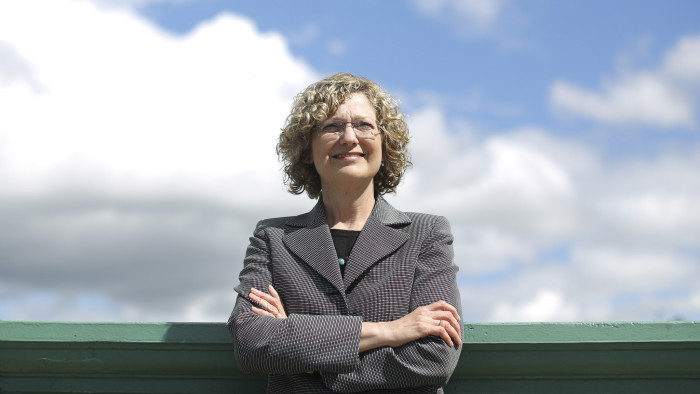Meet the dean: Idie Kesner, Kelley school at Indiana University

Simply sign up to the Business education myFT Digest -- delivered directly to your inbox.
Idalene Kesner has a very straight forward attitude to being a dean in 2015. “You have to run a business school as a business these days,” she says.
Head of the Kelley school of business at Indiana University, Prof Kesner — who goes by the name Idie — practices this philosophy in everything she implements. Since her appointment in 2013, she has launched joint degrees, partnerships and overseas programmes, all of which are carefully weighed up for their contribution to both the reach of the school and the bottom line.
It is a balancing act, says the Prof Kesner. “In the [different] programmes we run, there is a mix of margins,” she says. “When we make money on international operations we use that for scholarships for undergraduate and MBA students.”
The Kelley school, best known for its online MBA, which enrolled its first students in 1999, now includes a business of medicine MBA, for example, and there are plans to launch an MBA for high school educators. The school also runs an MBA for the players association of the NFL — the US National Football League.
Indeed, the school now runs more than 20 different programmes, a necessity with the cuts in public spending across the higher education sector. While the school used to get 20 per cent of its revenues from public funds, that is now 6 per cent and falling.
And it comes at a time of increasing market threat. “Without question, the biggest challenge is competition. Not all schools can survive,” says Prof Kesner. “Some schools battle it out on price, some battle it out on features and others on scholarships. Many schools, ourselves included, are looking at geographical expansion, trying to build foreign relationships.”
The school already runs an Executive MBA programme — an MBA for working managers — with the graduate school at SKK University in Korea and is planning a partnership with the UK’s Manchester Business School for a multi-country EMBA.
The dean has also been exploring a credit system, and now participants on some executive short courses can accrue credits that can be transferred towards degrees, such as the online MBA.
Two years into the job, Prof Kesner believes her policies of improving the branding of the school, increasing diversity and developing partnerships are showing signs of success. Applications across all the school’s programmes have increased by 20 per cent, she says, and partnerships are growing. What is more, the diversity among the faculty has increased, with the hiring of 40 academics over the past two years. Of the 300 academic staff, half are tenured or tenure track professors, the remaining half are lecturers or clinical faculty.
At the end of the day, success is also likely to be judged on the bottom line as much as the business model. “I am in control of my own P and L,” points out Prof Kesner. “I am in charge of my own business.”
Comments